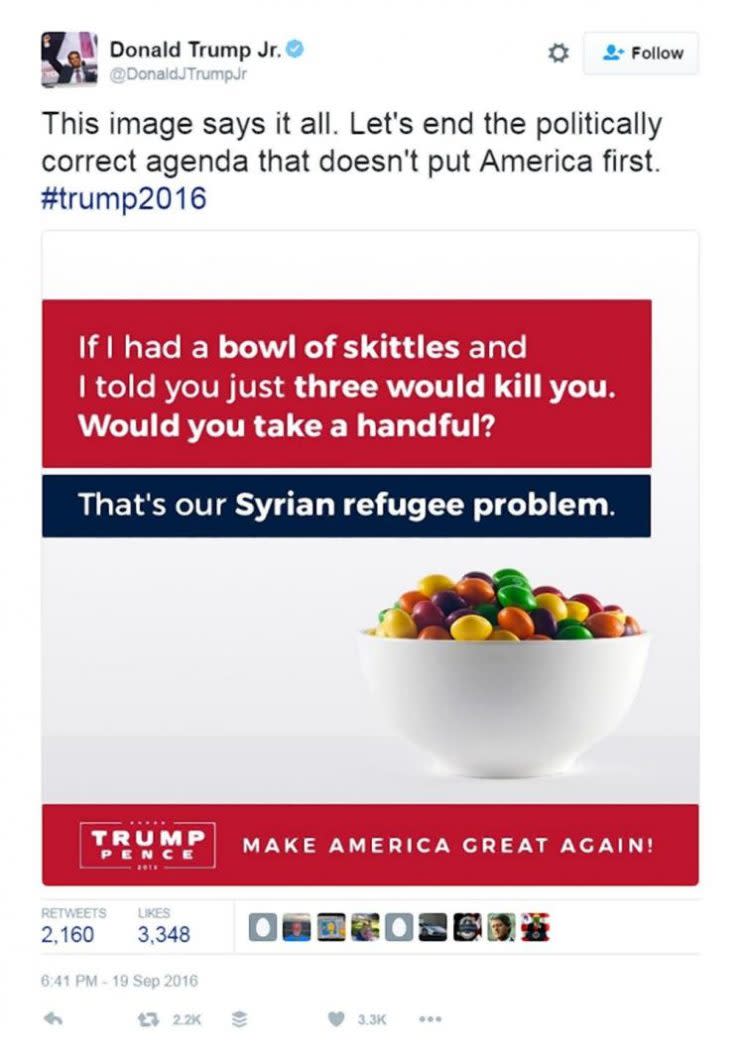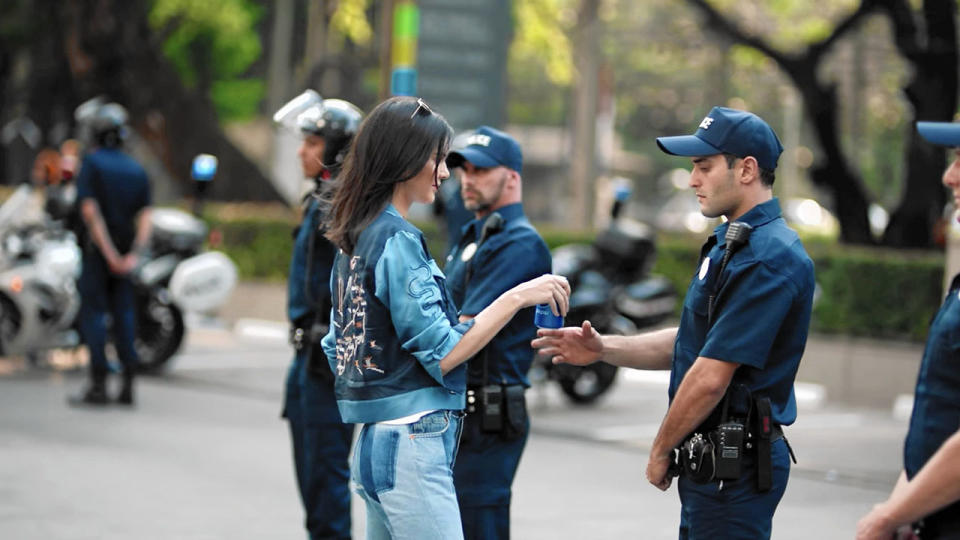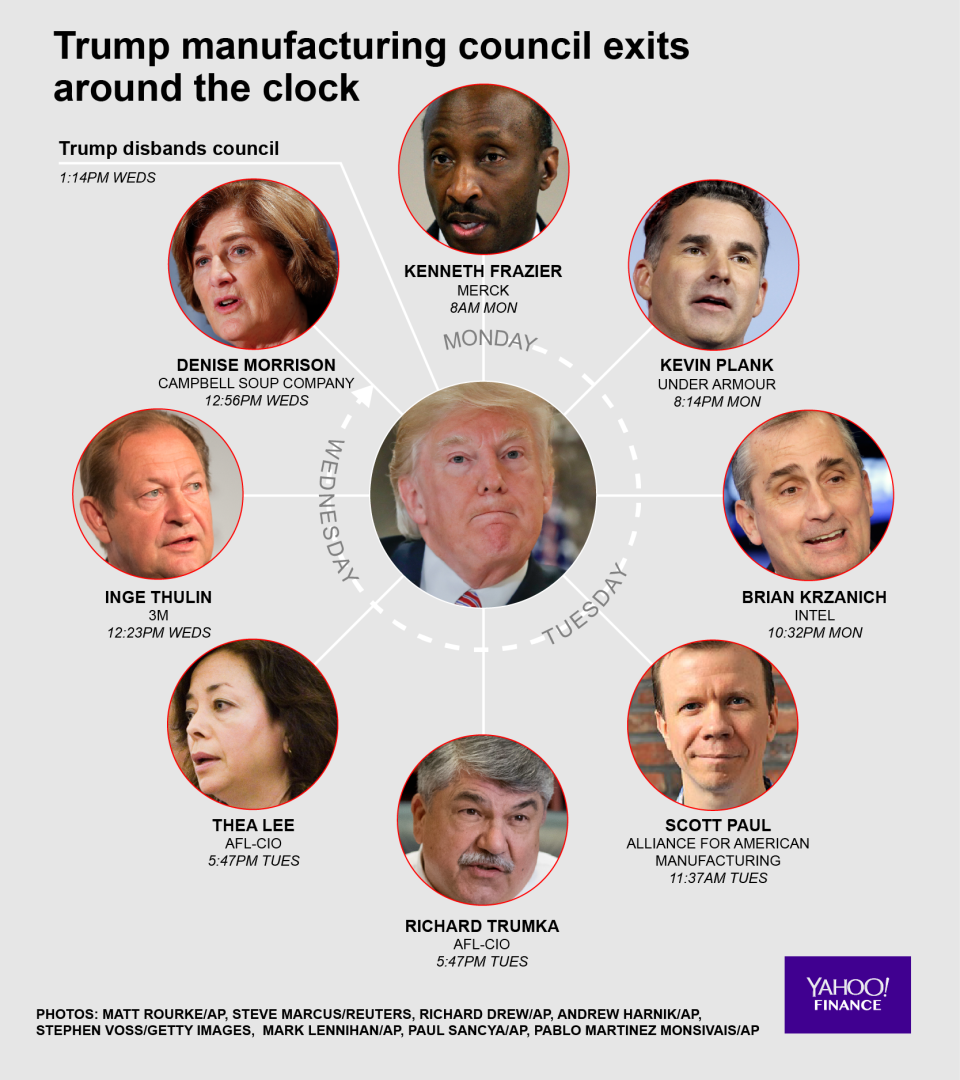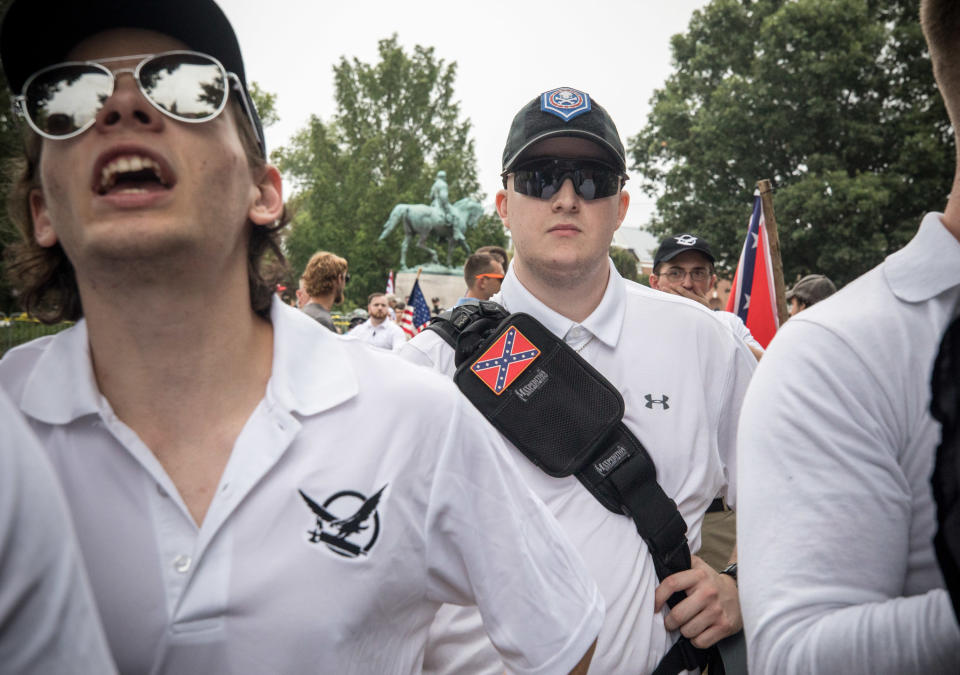From Tiki to Tic Tac, Trump era forces consumer brands into politics
When you think of Tiki torches, you might think of barbecues, summer, fire pits, or warding off mosquitoes. But Tiki Brand wants to make sure you don’t think of white nationalists.
This is the new normal for consumer brands in 2017.
After the violent rally in Charlottesville, Va., last weekend, where angry white nationalists marched and toted Tiki torches, Tiki issued a statement: “Tiki Brand is not associated in any way with the events that took place in Charlottesville and are deeply saddened and disappointed. We do not support their message or the use of our products in this way. Our products are designed to enhance backyard gatherings and to help family and friends connect with each other at home in their yard.”
The statement went viral on social media because, while it was serious, there’s also something darkly funny about the maker of Tiki torches having to announce that its torches aren’t meant for white nationalist rallies.
In the era of President Trump, consumer products like Tic Tac, Skittles, and Dippin’ Dots, brands that are usually innocuous and almost never need to get political in any way, are being forced to publicly take sides when they find their brand used in a political context.
“Putting themselves in the political crosshairs”
Back in September, during the presidential campaign, Donald Trump Jr. tweeted out a meme that compared a bowl of skittles to Syrian refugees. (He subsequently deleted the tweet; below is a screenshot.)

The next day, Skittles responded in a public statement: “Skittles are candy. Refugees are people. We don’t feel it’s an appropriate analogy. We will respectfully refrain from further commentary as anything we say could be misinterpreted as marketing.”
And then in October, just before the election, a recording came out of Donald Trump making lewd remarks about women to television host Billy Bush. On that recording, at one point, Trump said, “I’ve got to use some Tic Tacs, just in case I start kissing her.”
The negative association was strong enough that Tic Tac felt compelled to issue a statement that not only clarified Tic Tac’s brand beliefs, but appeared to judge Trump himself as well: “Tic Tac respects all women. We find the recent statements and behavior completely inappropriate and unacceptable.”
Tic Tac respects all women. We find the recent statements and behavior completely inappropriate and unacceptable.
— Tic Tac USA (@TicTacUSA) October 8, 2016
If you doubt that the internet has become more politically divided than ever before, look no further than these statements, which are, at the same time, both deadpan and dead serious.
Skittles had to remind the public that “Skittles are candy.” Tic Tac said it “respects women.” And Tiki instructed people that its torches are for “backyard gatherings.” (That is: not for neo-Nazi rallies.) It’s almost absurdist.
These statements get the brands a moment in the sun on social media, and they tend to reap a healthy dose of laughs, applause emojis, and amens. (Dippin’ Dots, for example, was aiming squarely for laughs when its CEO wrote an open letter to then-White House press secretary Sean Spicer responding to his tweets about the brand from years ago.)
But there can be a major downside.
“There is risk associated with having a politically charged presence,” says Michael Priem, CEO of the Minneapolis ad agency Modern Impact, whose clients include Samsung. He points to Pepsi’s now-infamous advertisement in April showing Kendall Jenner defusing a political rally by giving police officers a Pepsi. After social media outcry, Pepsi apologized and yanked the ad after one day.

“Pepsi tried to step up, but they sell sugar water, they don’t save lives,” Priem says. “Putting themselves in the political crosshairs, the danger there was way greater than the reward. I think Pepsi thought they would evoke a strong emotion in millennials, but it backfired. I think the mistake some brands have made has been treating millennials naively.”
Are the motivations genuine, or cynical?
Even for those brands that generated positive buzz from their statements, like Tiki and Tic Tac, it’s worth asking whether their motivation was genuine moral concern, or an attempt to boost their image. (And those need not be mutually exclusive.)
Priem leans toward the cynical view. “These brands are smart enough to understand that there are things they couldn’t put out into market themselves without being chastised, but then they get this opportunity and take it,” he says. “They have to realize their brands are no longer controlled by them; I say that when I’m counseling my clients. Smart marketers today realize they have to jump in and get involved when other folks are curating their brand story in a direction they don’t want.”
These decisions also boil down to protecting your intellectual property. Jeremy Sheff, an IP law professor at St. John’s University in New York, raises an interesting example from 2011, when the MTV show “The Jersey Shore” was at peak popularity. A character on the show, Mike “The Situation” Sorrentino, proudly wore Abercrombie & Fitch clothing and, on the show, loudly announced his love for the brand.
Abercrombie surprised some when it released a public statement distancing itself from Sorrentino and offered him money (reportedly $10,000) to stop wearing its clothes: “We understand that the show is for entertainment purposes, but believe this association is contrary to the aspirational nature of our brand, and may be distressing to many of our fans. We have therefore offered a substantial payment to Michael ‘The Situation’ Sorrentino and the producers of MTV’s ‘The Jersey Shore’ to have the character wear an alternate brand.”
Sheff says Abercrombie was trying to have its brand cake and eat it, too: “They wanted to signal to young people watching MTV, ‘The cast of The Jersey Shore wears our clothes,’ but at the same time signal to their parents, ‘Don’t worry, this isn’t our brand.’” (Sorrentino attempted to sue Abercrombie for damaging his name, but he lost his suit.)
In the case of the Detroit Red Wings, the hockey team may even have legal recourse. After a white nationalist group, calling itself the “Detroit Right Wings,” used the Red Wings logo as its own, the team issued a statement on Saturday: “The Detroit Red Wings vehemently disagree with and are not associated in any way with the event taking place today in Charlottesville, Va. The Red Wings believe that Hockey is for Everyone, and we celebrate the great diversity of our fan base and our nation.”
The statement ended with this line, which you didn’t see in the statements from Tiki, Tic Tac or Skittles: “We are exploring every possible legal action.”
Law360 points out that the Red Wings could bring a strong trademark case against the hate group, but also that a lawsuit would draw more attention to the misuse of the logo. (The team declined to comment for this story beyond its statement from the weekend.)
Of course, all of this applies equally to the CEOs that resigned from Trump’s manufacturing council this week.
In cases where the executives helm consumer-facing companies, like Under Armour (sports apparel), Intel (tech hardware), and Campbell’s (soup), they had to make a judgment call: Is it worth potentially offending part of our customer base in order to win over a different customer base?

Some of the white nationalists at the Charlottesville rally were wearing Under Armour shirts.
CEO Kevin Plank was second to resign from the manufacturing council, and you might wonder if images showing the Under Armour logo in that setting helped spur his departure.

But by leaving the council and appearing to take a stance against those marching, Under Armour may have lost those customers.
“If you sell consumer products, you don’t want to be seen as hostile to any of your consumers,” says Sheff. “But you’ve got to choose now. And many brands don’t want to choose. Then it becomes: Which customer base is bigger, or richer, and are you willing to alienate a profitable line of business in order to stand for something that goes beyond revenues, such as, oh, say, resistance to Nazism.”
Under Armour declined to comment beyond pointing to Plank’s statement from when he resigned the council on Tuesday night, and directing us back to a tweet from Under Armour Tuesday morning about Charlottesville.
We are saddened by #Charlottesville. There is no place for racism or discrimination in this world. We choose love & unity. – CEO Kevin Plank
— Under Armour (@UnderArmour) August 14, 2017
Michael Jordan, famously, is thought to have once said that he doesn’t take public political stances because, “Republicans buy sneakers too.” And yet even Jordan, in April 2016, issued a statement on behalf of the Charlotte Hornets opposing the North Carolina bathroom law. Many outlets framed it as the moment that Jordan put aside the “Republicans buy sneakers too” ethos—even Jordan eventually chose to take a side in a political debate.
To be sure, some brands, and some executives, still don’t want to take a side, so they try show awareness or concern around an issue without action.
Campbell’s tried that at first, issuing a statement on Wednesday morning that said its CEO would remain on the Trump council because, “it’s important for us to be at the table.” That statement has since been deleted, replaced with the statement in which CEO Denise Morrison resigned the council. But Campbell’s didn’t do that until seven other executives left the council and social media noise about Campbell’s grew to a fever pitch.
Back in February, when CEOs like Elon Musk of Tesla and Travis Kalanick were under pressure for their role on a different Trump council, we called this delicate approach a tightrope walk.
Sheff calls it the dance. Brands or executives try to dance around making a statement until they are forced to by public outcry: “So, will people let you get away with doing the dance? This seems to me like a situation where the answer is no. But we’ll see.”
—
Daniel Roberts is a writer at Yahoo Finance, covering media, sports and tech. Follow him on Twitter at @readDanwrite.
Read more:
There’s more to Under Armour CEO’s resignation from Trump council
Uber, Airbnb CEOs walk a tightrope in Trump era
Time Inc is still for sale—and a Trump backer could buy it
Trump’s presidency creates an unprecedented problem for pro golf
